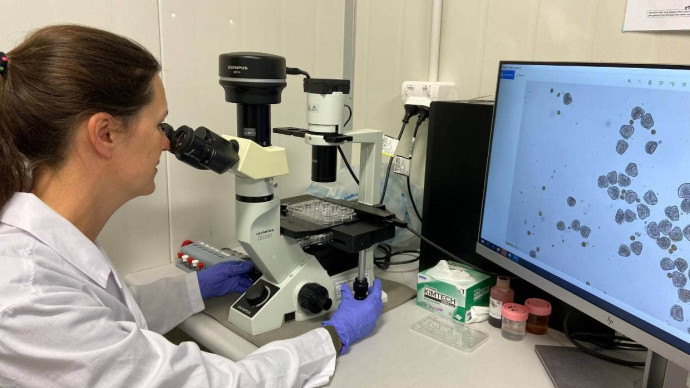Research
Published 30 June 2022Developing quick screening tests for harmful algal blooms

A new Catalyst: Seeding project seeks to develop quick, low-cost screening tests for harmful algal blooms for use in the aquaculture sector.
A major risk to the aquaculture sectors in New Zealand (NZ) and France is the occurrence of harmful algal blooms (HABs). HAB species can produce toxic compounds that negatively affect surrounding fish and shellfish. In NZ, the aquaculture industry is worth over $650M NZD and comprises three main species: King Salmon, Pacific oyster and Greenshell™ mussel (GSM). Recent novel occurrences of HABs combined with salmon stock losses, lost spat fall and unexplained summer mortalities of GSM, have highlighted that HABs may be affecting this industry. Determining the effects of HABs on whole animals has many challenges. The development of in vitro (cellular) assays of aquaculture species would enable rapid ethical, and low-cost toxicity screening.
In this project, NZ researchers will establish a collaborative relationship with French scientists at IFREMER and LEMAR who are experts in HABs and their effects on cells of fish and shellfish, based on in vitro cell culture and exposure.
The aims of this project are to:
- develop a fish gill cell line and use of Pacific oyster gametes at the Cawthron Institute
- test the toxicity of extracts from HAB species of interest to both countries (Alexandrium, Karlodinium and Karenia) which negatively affect aquaculture.
This project follows on from research by Dr Anne Rolton Vignier that confirmed that HABs can have negative effects on shellfish health, not just human health.
Read more: New research shines light on effects of algae blooms on shellfish
About Catalyst: Seeding
Facilitates new small and medium pre-research strategic partnerships that cannot be supported through other means, and with a view to developing full collaborations that could be supported through Catalyst: Strategic over time. It is funded by the Ministry of Business, Innovation and Employment and administered by Royal Society Te Apārangi. Learn more.
RESEARCHER
Dr Anne Rolton Vignier
ORGANISATION
Cawthron Institute
FUNDING SUPPORT
Catalyst: Seeding
CONTRACT OR PROJECT ID
CSG-CAW2102
